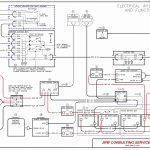Overview:
The Power Distribution Course provides an in-depth understanding of electrical power
distribution systems, covering the fundamentals of design, installation, operation, and
maintenance of distribution networks. It is designed to equip participants with the essential
knowledge required to effectively manage and distribute electrical power to residential,
commercial, and industrial areas. The course also emphasizes the safety standards and
regulations governing power distribution systems.
Course Objectives:
– Provide a comprehensive understanding of power distribution systems and their
components.
– Enable participants to design and implement efficient and safe power distribution
networks.
– Familiarize participants with electrical equipment such as transformers, circuit breakers,
and substations.
– Teach the principles of load flow analysis, fault analysis, and voltage regulation in
distribution systems.
– Ensure participants understand and apply national and international safety standards and
codes.
– Develop the skills to troubleshoot, maintain, and optimize power distribution systems.
Training Content:
1. Introduction to Power Distribution Systems:
– Overview of power generation, transmission, and distribution.
– Components of a power distribution system (transformers, substations, cables, and
switchgear).
– Types of distribution networks (radial, ring, and interconnected systems).
2. Power Distribution Network Design:
– Load estimation and forecasting.
– Design criteria for residential, commercial, and industrial power distribution.
– Voltage levels in distribution networks.
– Cable sizing and selection for different applications.
– Design and layout of substations and feeder circuits.
3. Electrical Equipment in Power Distribution:
– Transformers: types, sizing, installation, and maintenance.
– Circuit breakers and switchgear.
– Capacitors and power factor correction.
– Protective relays and fuses.
– Voltage regulation equipment and techniques.
4. Safety Standards and Regulations:
– National and international codes and standards (e.g., NEC, IEEE, IEC).
– Electrical safety procedures for installation, operation, and maintenance.
– Grounding and bonding in power distribution systems.
– Protection against electrical faults and hazards.
5. Power System Analysis:
– Load flow analysis and load balancing.
– Fault analysis and protection coordination.
– Voltage regulation and reactive power management.
– Power quality issues and mitigation techniques.
6. Substation and Distribution Network Maintenance:
– Preventive and predictive maintenance practices.
– Fault diagnosis and troubleshooting.
– Condition monitoring of transformers and circuit breakers.
– Maintenance of overhead and underground power lines.
7. Automation in Power Distribution:
– Smart grid technologies and their applications in power distribution.
– Distribution management systems (DMS).
– SCADA systems for monitoring and control of distribution networks.
– Integration of renewable energy sources into distribution networks.
8. Hands-on Training and Case Studies:
– Practical exercises in power distribution design and analysis.
– Case studies of real-world power distribution projects.
– Simulation of fault scenarios and network optimization techniques.
9. Final Project and Assessment:
– Design and present a power distribution network for a specific area.
– Pre- and post-course assessments to evaluate learning outcomes.
Target Audience:
– Electrical engineers and technicians involved in power distribution.
– Power system planners and designers.
– Maintenance engineers and technicians responsible for substations and distribution
networks.
– Project managers in the energy sector.
– Engineering students specializing in electrical power systems.
– Individuals interested in gaining knowledge of power distribution systems and network
management.
This course is suitable for both beginners and professionals looking to deepen their
understanding of power distribution systems, offering a balanced mix of theoretical
knowledge and practical skills.






